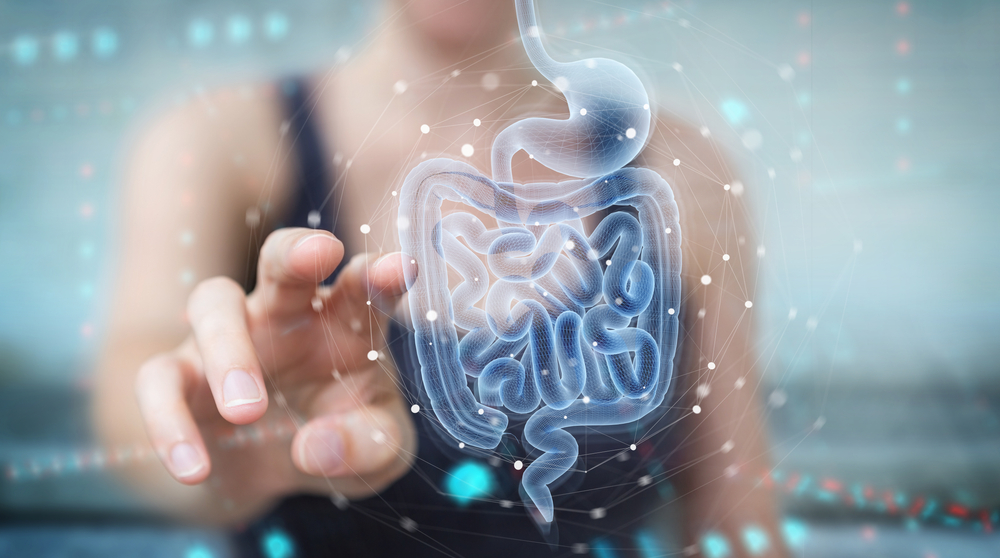
Probiotics Could Battle Anxiety, Leading to New Treatments for Mental Health
www.discovermagazine.com
Once again, the microbiome proves to be a key player in human health. The diverse microbial community we inherit at birth serves multiple functions, from aiding digestion and nutrient production to training our immune system and even influencing brain chemistry. A recent study, published in EMBO Molecular Medicine, builds on the exploration of the gut-brain connection by linking anxiety regulation to microbial metabolites.Researchers from Duke-NUS Medical School and the National Neuroscience Institute in Singapore have uncovered how microbial produced compounds influence brain activity associated with anxiety in mice. Their findings could pave the way for new probiotic-based treatments for anxiety disorders.Anxiety and Amygdala ActivityThe study found that mice raised in a germ-free environment exhibited increased anxiety-like behaviors. This was linked to heightened activity in neurons within the amygdala, a small yet crucial brain structure responsible for processing emotions.In the amygdala, calcium-dependent SK2 channels help regulate neuronal activity. In the absence of microbes, these channels were less effective at controlling neuron firing, leading to excessive excitability and, consequently, anxiety-related behavior.To test whether gut microbes influence neuronal excitability in the amygdala, researchers introduced live microbes to the germ-free mice through a process known as conventionalization. This involved fecal transplantation from microbe-exposed control mice. The results were striking: the previously overactive neurons became less excitable, and the mice displayed reduced anxiety behaviors.Our findings reveal the specific and intricate neural process that link microbes to mental health," said Assistant Professor Shawn Je, from Duke-NUS Neuroscience and Behavioral Disorders Research Program, in a press release. "Essentially, the lack of these microbes disrupted the way their brains functioned, particularly in areas that control fear and anxiety, leading to anxious behavior."Indoles: The Key to Microbial Influence on the BrainThe study suggests that indoles, a class of organic compounds structurally related to serotonin, the neurotransmitter that affects mood, play a crucial role in this gut-brain interaction. Gut bacteria produce a wide variety of metabolites, and indoles have the remarkable ability to cross the blood-brain barrier an essential trait for any substance that directly affects brain function.When germ-free mice were given drinking water supplemented with indoles, neuronal activity in the amygdala decreased, and their anxiety-related behaviors diminished. This finding reinforces the idea that naturally occurring microbial metabolites contribute to maintaining emotional balance.The Evolutionary Role of AnxietySven Pettersson, a lead author of the study from the Department of Research, National Neuroscience Institute of Singapore, explained that anxiety-related responses have deep evolutionary roots. At birth, newborns experience a major physiological shift hunger becomes a survival-driven sensation, essentially a first encounter with anxiety. This transition is accompanied by exposure to breast milk, which contains microbes capable of producing indoles.In mammals, circulating levels of microbial indoles may reflect an individual's sensitivity to stress and their vulnerability to anxiety-related conditions.Anxiety is not merely a psychological phenomenon; it is linked to physiological and behavioral changes that help organisms respond to potential threats. The presence of gut-derived indoles may help regulate these responses, ensuring a balanced reaction to stress.A Potential New Treatment PathwayAnxiety disorders are among the most common mental health conditions, yet treatment options remain limited, with many individuals struggling to tolerate standard psychiatric medications.Our findings underscore the deep evolutionary links between microbes, nutrition and brain function," said Patrick Tan, senior vice-dean for research at Duke-NUS, in the press release. "This has huge potential for people suffering from stress-related conditions, such as sleep disorders or those unable to tolerate standard psychiatric medications. Its a reminder that mental health is not just in the brainits in the gut too."As research into the gut-brain connection continues to evolve, indole-based probiotics or dietary supplements could become a natural alternative for managing anxiety. While further studies are needed, these findings reinforce the growing recognition that mental health is not solely a function of the brain, it is deeply intertwined with the gut microbiome.The prospect of harnessing beneficial microbes for mental well-being may soon transition from theory to reality, offering new hope for those affected by anxiety disorders.Article SourcesOur writers at Discovermagazine.com use peer-reviewed studies and high-quality sources for our articles, and our editors review for scientific accuracy and editorial standards. Review the sources used below for this article:EMBO Molecular Medicine. Microbial metabolites tune amygdala neuronal hyperexcitability and anxiety-linked behaviorsNational Library of Medicine. A systematic review of reviews on the prevalence of anxiety disorders in adult populationsHaving worked as a biomedical research assistant in labs across three countries, Jenny excels at translating complex scientific concepts ranging from medical breakthroughs and pharmacological discoveries to the latest in nutrition into engaging, accessible content. Her interests extend to topics such as human evolution, psychology, and quirky animal stories. When shes not immersed in a popular science book, youll find her catching waves or cruising around Vancouver Island on her longboard.
0 Commentaires
·0 Parts
·68 Vue


